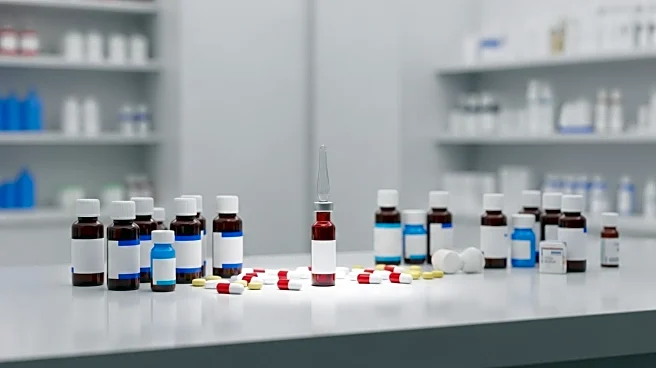What's Happening?
Sam's Club has announced the expansion of its same-day delivery service to include insulin and other temperature-controlled medications. This initiative aims to provide faster and more convenient access to crucial prescriptions for its members. The service now covers a range of refrigerated medications, including antibiotics and GLP-1 drugs such as Ozempic and Wegovy. Matt Holt, Vice President at Sam's Club, emphasized the company's commitment to blending innovation with trusted pharmacy services to enhance healthcare accessibility. This development is particularly significant for the over 11% of New Yorkers with diabetes who may require insulin, as daily insulin use is essential for those with Type 1 diabetes.
Why It's Important?
The expansion of same-day delivery for medications by Sam's Club is a significant step in improving healthcare accessibility. It addresses the needs of individuals requiring temperature-sensitive medications, such as insulin, which is vital for diabetes management. By offering this service, Sam's Club is enhancing convenience and potentially improving health outcomes for its members. This move could also set a precedent for other retailers to follow suit, thereby increasing competition in the pharmacy sector and driving further innovations in healthcare delivery.
What's Next?
Sam's Club members can access this service by using the store locator to find a pharmacy near them and check the availability of same-day delivery. As the service gains traction, it may lead to further expansions and improvements in delivery logistics. Other pharmacy chains might also consider similar initiatives to remain competitive, potentially leading to broader industry changes in how medications are distributed and accessed.
Beyond the Headlines
This development highlights the growing trend of integrating technology with healthcare services to improve patient outcomes. The ability to receive medications quickly can reduce the risk of missed doses and improve adherence to treatment plans. Additionally, it underscores the importance of addressing healthcare deserts, where access to pharmacies is limited, and the role of large retailers in filling these gaps.









